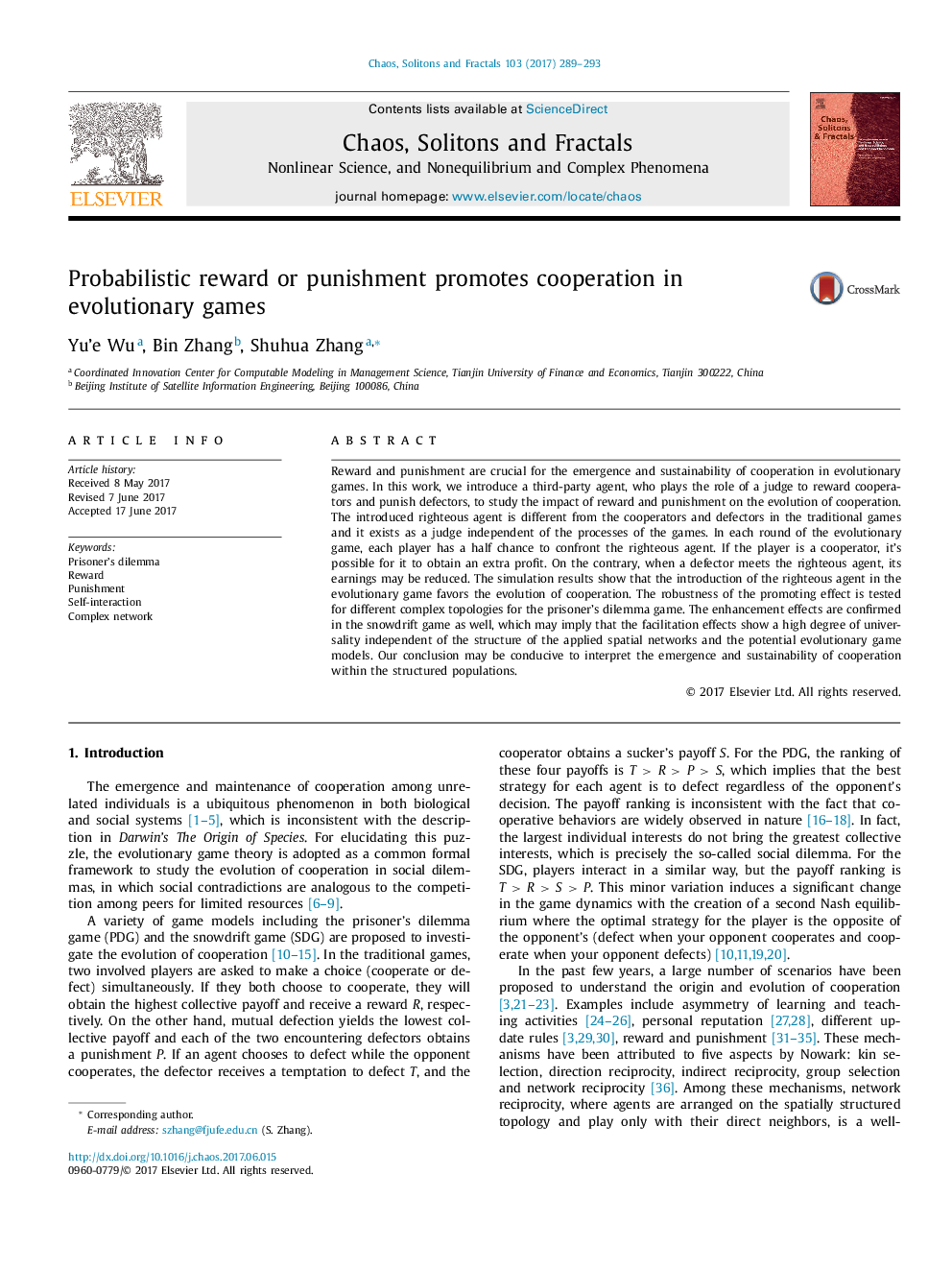ترجمه فارسی عنوان مقاله
پاداش یا مجازات احتمالی، همکاری در بازی های تکاملی را ترویج می دهد
عنوان انگلیسی
Probabilistic reward or punishment promotes cooperation in evolutionary games
| کد مقاله | سال انتشار | تعداد صفحات مقاله انگلیسی |
|---|---|---|
| 112691 | 2017 | 5 صفحه PDF |
منبع

Publisher : Elsevier - Science Direct (الزویر - ساینس دایرکت)
Journal : Chaos, Solitons & Fractals, Volume 103, October 2017, Pages 289-293
ترجمه کلمات کلیدی
معضل زندان، جایزه، مجازات، خود تعامل، شبکه پیچیده
کلمات کلیدی انگلیسی
Prisonerâs dilemma; Reward; Punishment; Self-interaction; Complex network;

